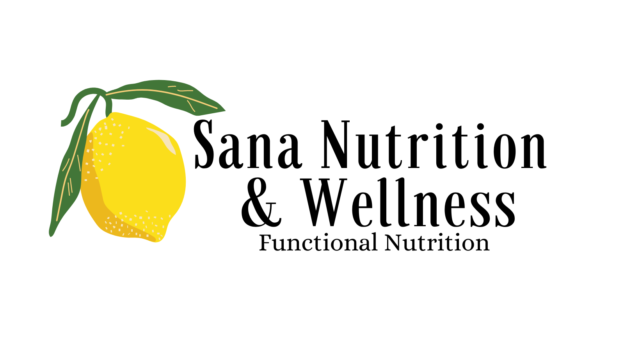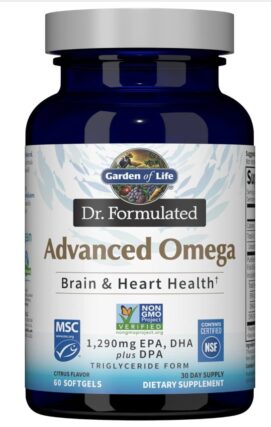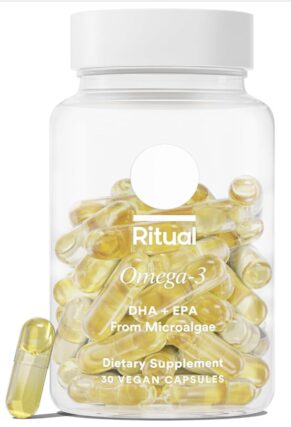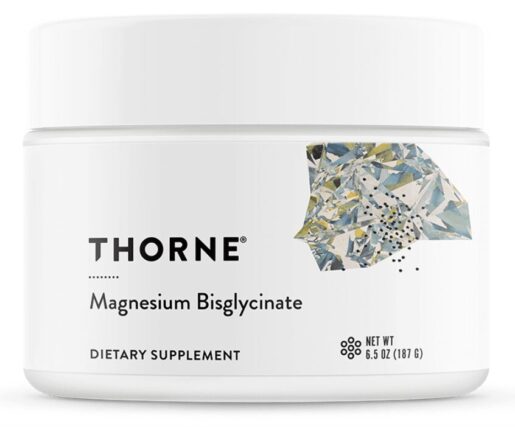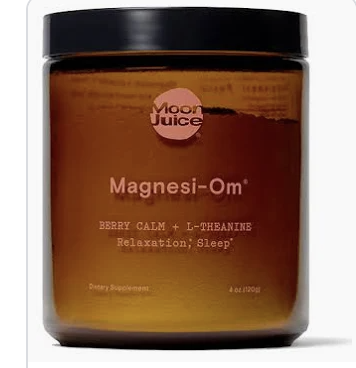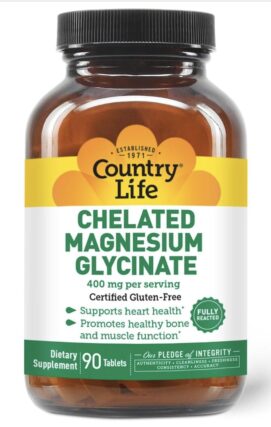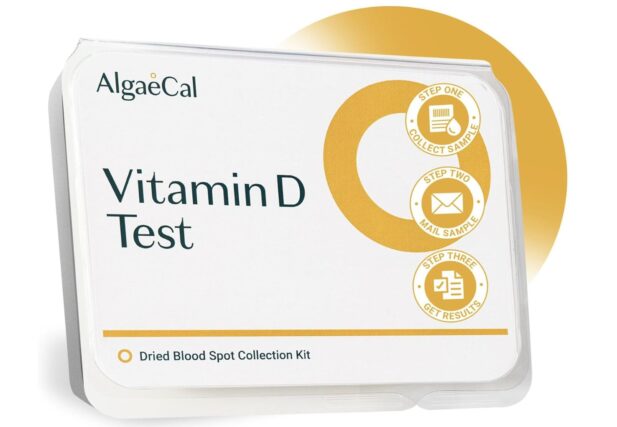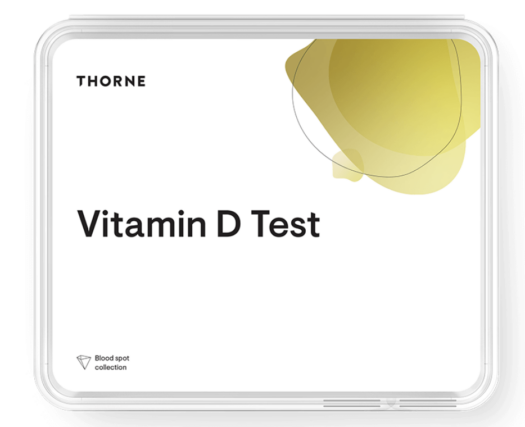Top Nutritional Strategies to Support Mental Health, Depression, and Anxiety Naturally!
Let’s get this out of the way first: mental health isn’t just in your head. It’s also in your gut, your hormones, your inflammation levels, and your blood sugar—and all of those things are directly impacted by what’s on your plate.
Now, food isn’t a magic cure for anxiety or depression, but it is a powerful, underused tool in your mental wellness toolkit. And as a dietitian who’s spent a lot of time helping women feel more like themselves again, I’m here to walk you through the foods and nutrients that can actually support your mood, energy, and sense of balance—without adding more overwhelm to your day.
Let’s break it down in a way that’s simple, doable, and backed by science (with a side of avocado toast, obviously).

🧠 1. The Gut-Brain Connection: Why Your Mood Starts in Your Belly
Ever had “butterflies” in your stomach before a big event? That’s your gut-brain axis at work—a literal two-way communication system between your gut and your brain.
Your gut houses trillions of microbes (hi, microbiome!) that play a huge role in how you feel emotionally. These microbes help regulate inflammation, produce neurotransmitters like serotonin (about 90% of it is made in the gut!), and influence your stress response.
In other words: your gut isn’t just digesting food—it’s helping regulate your mood. If your gut health is out of balance, it can throw off everything from your energy and sleep to how you manage stress.
Research on the gut-brain axis and the connection between your microbiome and mood is exploding right now. So yes, those fermented foods and probiotics really can help.
✨ 2. Nutrients That Support Mental Health
Let’s talk nutrients. These aren’t just random—they’re the raw materials your brain and body need to make feel-good chemicals like serotonin, dopamine, and GABA. Here are the MVPs:
🐟 Omega-3 Fatty Acids
EPA and DHA are especially important. These anti-inflammatory fats, found in fatty fish like salmon, are crucial for brain health and mood stability. Low levels have been linked to depression and brain fog.
Tip: Aim for 2 servings of fatty fish per week, or take a clean, high-quality omega-3 supplement.
💊 B Vitamins (B6, B12, Folate)
Crucial for neurotransmitter production, energy, and mental clarity. Deficiencies can show up as fatigue, irritability, and brain fog.
Tip: If you’re plant-based or under a lot of stress, you may need extra support. Try for a methylated B-complex.
🌿 Magnesium
Magnesium is a key ingredient (cofactor) in over 300 enzymatic reactions throughout your body. So when we are deficient, many of our basic reactions don’t work optimally. It’s the “calm” mineral. Magnesium helps your nervous system chill, supports better sleep, and may reduce anxiety.
Tip: Get more through leafy greens, pumpkin seeds, and almonds—or try magnesium glycinate before bed (I love using a powder mg because it’s an easier way to get ~400mg, without having to swallow giant pills). (Epsom salts as also a relaxing way to get magnesium; its a delightful, soothing way to relax after a long say and boosts your magnesium)
🔋 Iron
This is especially important for women who are still having their period. Iron helps with energy, brain function, and oxygen delivery to the brain.
Tip: Include red meat, shellfish, or pumpkin seeds. If you’re constantly tired, moody, or bruising a lot, ask your doctor to check your iron levels.
🧪 Zinc
Zinc plays a role in regulating mood and supports a healthy stress response.
Tip: Zinc is found in meats, seeds, and legumes. A zinc Supplement can help but don’t take it too long because it can interfere with the absorption of other minerals. It can be part of a multivitamin but also focus on getting it from food.
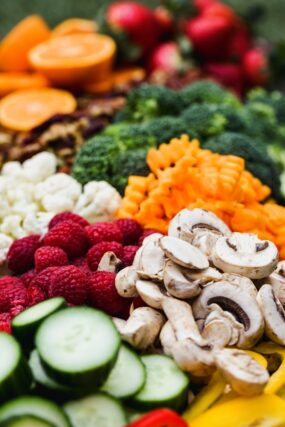
🌈 Phytochemicals
These plant-based chemicals are powerful antioxidants that support brain and body function.
Tip: Focus on eating a colorful variety of fruits and vegetables. Think “eat the rainbow”—but make it cute.
☀️ Vitamin D
Vitamin D is a vitamin, but acts like a hormone, so it’s VERY important. Among other things, It helps regulate mood and supports your immune and nervous system. Studies show low levels of D are linked with depression and other mental health struggles. And many of us are deficient.
Tip: Ask your doctor to check your levels—shoot for 50–80 ng/mL for optimal health. If you’re low, a supplement can help. Fun fact: Your body needs magnesium and zinc to activate vitamin D properly. Try an at-home Vitamin D test, too.
🥗 3. Foods to Focus On
Ok, now that we’ve nerded out on nutrients, let’s get to the good stuff—food. Here are the staples I recommend loading up on to help support your mood naturally:
- Salmon (omega-3s, B12, vitamin D)
- Leafy greens like spinach and kale (magnesium, folate)
- Berries (antioxidants to protect your brain)
- Nuts & seeds (healthy fats, zinc, magnesium)
- Fermented foods like kimchi, sauerkraut, kefir (happy gut = happy brain)
👉 What it looks like: Build-Your-Own Mood Bowl:
Easy, nutrient-packed, and totally Instagram-worthy.
- Base: Quinoa or brown rice (fiber + gut support)
- Protein: Grilled salmon or chicken or Chickpeas
- Veggies: Spinach, shredded carrots, radishes, roasted cauliflower, red cabbage
- Toppings: Kimchi, avocado slices, pumpkin seeds, hemp seeds
- Dressing: Olive oil + lemon + tahini
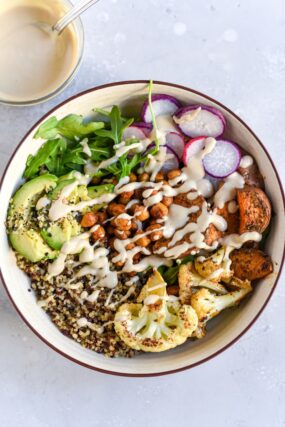
🧃 4. Foods That Might Be Dragging You Down
This isn’t about being perfect or swearing off dessert forever. But some foods can mess with your mood—especially if they’re crowding out the good stuff.
🚫 Ultra-Processed Foods
Think packaged snacks, frozen meals, fast food. They’re low in nutrients and can disrupt your gut health and blood sugar.
Salmon Cobb SaladTry this instead: Yogurt + berries for breakfast, a salad with salmon for lunch, and something like my apple cheddar meatloaves with roasted broccoli for dinner.
🚫 Refined Sugar
A little sugar? Fine. But a lot of it can spike your mood—and crash it just as fast. It’s also inflammatory.
Try this instead: Natural sweet treats like fruit or a little Keep it balanced with protein, fiber, and healthy fats.

🚫 Not Eating Consistently
When your blood sugar dips, so does your mood. Skipping meals often leads to hanger, and then we grab the easiest (usually least healthy) thing we can find.
Try this instead: Build a loose meal plan, especially on busy days so you know what you are going to eat.
🚫 Alcohol
It might feel relaxing in the moment, but alcohol messes with sleep, gut health, and brain chemistry. It’s technically a depressant.
Try this: Just bring some awareness here. If your mood has been off lately, it might be worth rethinking your evening glass of wine. Focus on balance and being intentional. Booze also messes with your sleep, which is really important for good mental health!
🔄 5. Simple Swaps to Support Mood
(That Don’t Require a Degree in Nutrition)
Instead of…Try this…
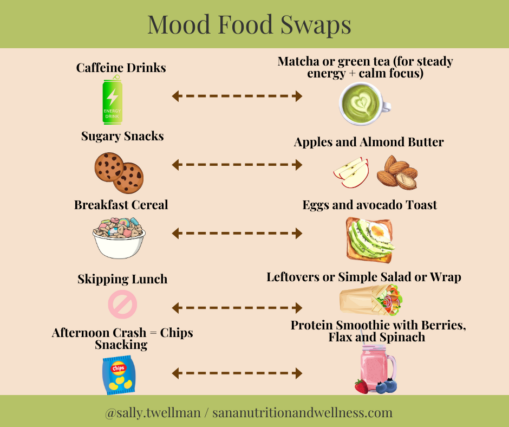
These little tweaks help balance your blood sugar and give your brain the steady fuel it needs to feel good all day.
🧠 Final Thoughts
Mental health is complex, and true mental wellness usually requires a multi-faceted approach: therapy, support, sometimes medication, and definitely lifestyle habits. But food? That’s something you can start with today.
It’s not about being perfect. It’s about giving your body (and brain!) the tools it needs to show up for you.
Next time you’re feeling a little off, ask yourself: Have I eaten something nourishing today?
Your gut, your brain, and your future self will thank you.
Want to take it a step further? In my next post, we’ll talk about simple lifestyle changes—like sleep, movement, and screen time—that you can layer with nutrition for a solid mental health support system.
Save this post for later or share it with a friend who could use a little inspiration. And if you want more simple wellness tips, sign up for my newsletter, The Lemonade—we keep things grounded, fun, and actually useful.
This post contains affiliate links, which means I may earn a small commission if you make a purchase through these links—at no extra cost to you. Thank you for supporting my work!.
